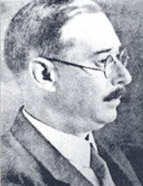

JC certifies an irrefutable ethical and deontological sign in a university corpus little inclined to observe it: i n 1919, he distanced himself from the ‘democratic’ purge aimed at eliminating the ‘Germanophile ’ and monarchist professors (Salazar among them) and halting the presence of the School of Arts and Humanities, extinguished by Minister Leonardo Coimbra ( ‘ it should disappear, because, since there are now the Universities of Lisbon and Oporto, there is no need to maintain a third University whose existence is only a respect for traditions’ – A Manhã [The Morning] , no. 774, 21- 05 -1919) who, in covert collusion with the former theologian Alves dos Santos, maintained the plan, later achieved, to create the School of Arts and Humanities of Op orto, a sort of paradise for PhDs w h ere graduate lecturers get their doctorate by decree. It was the republican Carvalho who demanded, in the midst of the religious war and against the Jacobin government ’ s refusal, that a colleague of his, the then priest Gonçalves Cerejeira, join the faculty on merit alone.
JC lectures and puts into practice the Nietzschean apology for philosophy: the philosopher ’ s job is to be a Protestant . He set the international agenda, taking advantage of the networks that the old University and the young Republic had at their disposal: S ecretary of the Societas Spinoziana , he opened up intellectual avenues with Léon Brunschvicg (the French-Jewish philosopher whose presentation on Pascal and the research method for the history of philosophy – with Dilthey – most influenced him), Roger Bastide, Carl Gebhardt, Keyserling, Marcel Bataillon, Jacques Chevalier, Joseph Moreau, Cruz Costa. It was JC (and Moncada) who, in the 1950s, sustained the frenzy of so-called Portuguese philosophy in the name of the Pascalian, rational dignity of the spirit. In short, if he did not encourage young people to write essays, they did it in spite of him (S. Lima, Ag. da Silva, E. Lourenço) and he (in spite of himself) wrote essays on Zaratrusta do Marão [Zaratrusta of Marão] , Teixeira de Pascoais, inferences that did not authorise prefabricated philosophies. The free competence to investigate and think, linked to the dianoetic virtù read in the Stagirite (balance, thoroughness, probity), leaves a fruitful epistemic vis .
This work is financed by national funds through FCT - Foundation for Science and Technology, I.P, in the scope of the projects UIDB/04311/2020 and UIDP/04311/2020.
